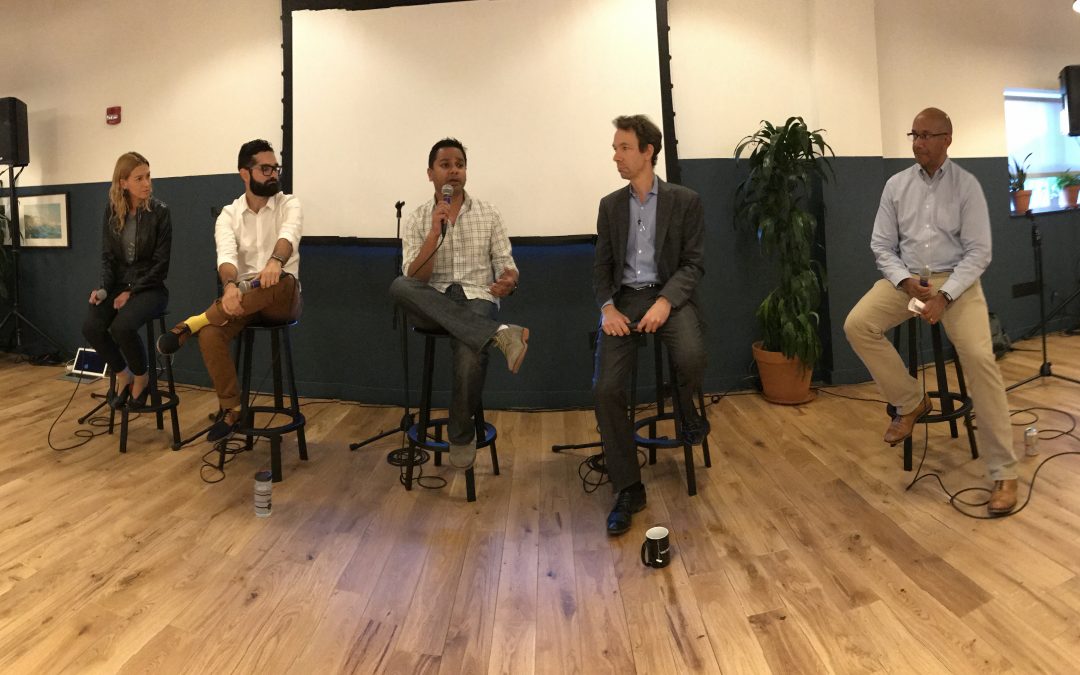Graduation is supposed to be a happy time. But many of our universities’ most promising entrepreneurial grads from other parts of the world dread it. Why? Because they have to scramble to get a visa to remain in Massachusetts and work for their newly created companies. Despite the legendary contributions of immigrant entrepreneurs to our economy, there is still not a clear national path for entrepreneurs in the immigration system.
Massachusetts has taken matters into its own hands. It’s singular ability to help them fight through the immigration system to remain after they graduate was on full display on May 24th at the Innovation & Entrepreneurship Summit organized by the University of Massachusetts Venture Development Center with strong support by the New England Venture Capital Association. Over 225 investors, entrepreneurs and lawyers gathered to give inspiration and practical advice to recent entrepreneurial grads seeking to launch their dreams in Massachusetts.
Founder Collective’s David Frankel, known for having a Midas touch, kicked off the event with an inspirational story. After an Internet company he co-founded in South Africa was acquired, he came to Harvard Business School, and remained after graduation to become a successful seed investor in several well-known companies including PillPack employing hundreds in Boston. The moderator of this chat was Chetan Manikantan, co-founder of Tengu.
David was followed by a group of leading immigration attorneys – Jeff Goldman, Rachel Casseus and Sandra Torres. Despite federal policy shifts that could complicate the path to entrepreneurship, all expressed cautious optimism about entrepreneurs’ ability to obtain a visa to remain in Massachusetts after graduating. Each reported 100% success in helping them get treasured H-1B, O-1 and EB-1 visas. Their message: Get a good immigration attorney.
Then a group of those entrepreneurs presented, telling personal stories how they fought through the immigration system to get a visa with help from the Venture Development Center’s Global Entrepreneur in Residence program, raised funding and launched their companies. The panelists were: Paulo Melo, doDOC; Fanyu Lin, Fluxus; Joana Vieira, Line Health; Alessandro Babini, Humon; and Thomas Ketchell, Sutori.
Many entrepreneurs like them who create a startup company during their studies at a university in the United States face a chicken and egg problem. They need their business operating to sponsor their visa, but they cannot work for the business to get it started without a visa. Under the Massachusetts Global Entrepreneur in Residence, their universities can step in to give them a visa until their companies can independently sponsor them.
The last panel was remarkable in its composition – here were many of Boston’s leading seed investors, all who had come from other parts of the world – Brazil, France, India and Germany. They were: David McFarlane, Converge Venture Partners; Nitin Pachisia, Unshackled Ventures; Clement Cazalot, Techstars Boston; Johannes Fruehauf, BioInnovation Capital and Eveline Buchatskiy, One Way Ventures.
Eveline exhorted entrepreneurs to use their legendary grit to their advantage in pitching investors. Being an immigrant increases their chances of accomplishing more with less.
William Brah closed the event by underscoring how Boston has achieved its status as a world innovation hub by working hard to make it a desirable place, in this case, by learning how to successfully help entrepreneurs navigate the immigration system.
According to Johannes: “The great turnout tonight confirms that this was timely and the community has a huge need for more discussion.” The Venture Development Center is working with the organizers of Boston’s HUBweek, October 12-15, 2017, to plan an entrepreneur immigration event on the main stage at City Hall Plaza.
The article is prepared by William J Brah, Director, University of Massachusetts Venture Development Center, and is also published at New England Venture Capital Association’s blog.

